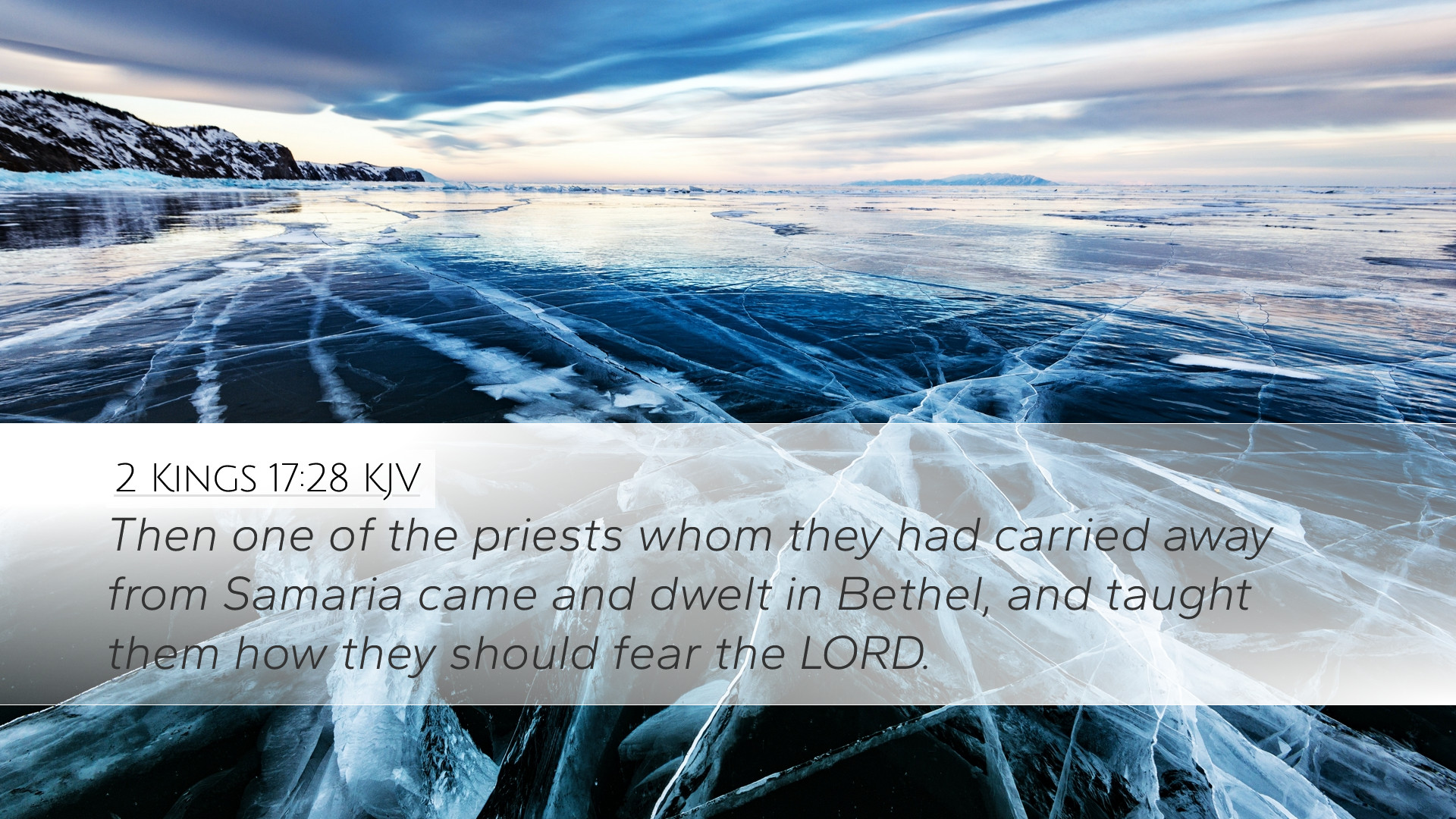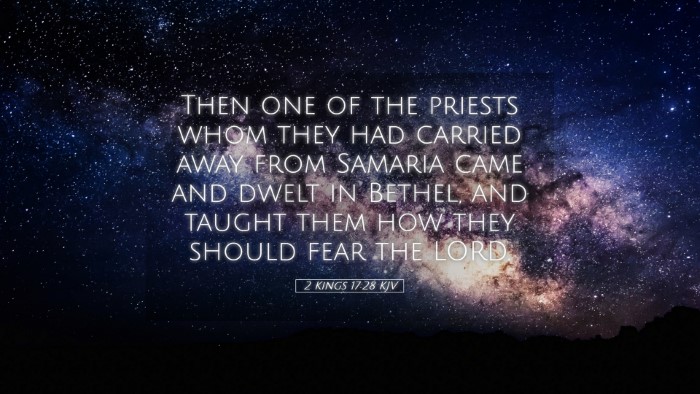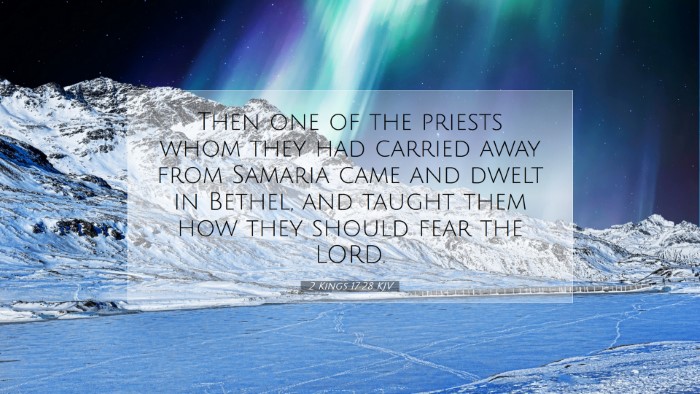Commentary on 2 Kings 17:28
Verse: "Then one of the priests whom they had carried away from Samaria came and dwelt in Bethel, and taught them how they should fear the Lord."
Introduction
This verse serves as a pivotal moment in the history of Israel during the era of the divided kingdom, particularly in the context of the Assyrian conquest of the northern kingdom. It provides insight into the measures taken by the Assyrians to populate the land of Israel with new inhabitants who were instructed in the worship of Jehovah, and the significance of this action as it relates to the true worship of God.
Historical Context
According to the preceding chapters, the kingdom of Israel was taken captive by the Assyrians due to their persistent idolatry and rebellion against Jehovah. The Assyrian policy often involved relocating conquered peoples to prevent uprisings and to mix populations. The move to dwell in Bethel and to introduce a priest of Jehovah reflects an attempt to integrate local worship practices of the Israelites with Assyrian beliefs.
Commentary Insights
Matthew Henry's Commentary
Matthew Henry points out that the coming of the priest from Samaria signifies God's providence in still maintaining a witness of the true religion amidst a people largely given to idolatry. This priest was essentially appointed to bring knowledge of the LORD to the Gentile nation, illustrating God's mercy even in judgment.
Furthermore, Henry emphasizes the importance of the priest's teaching, indicating that true worship must be rightly directed. He reflects on the necessity of understanding the Lord's will as fundamental to reverent worship. The priest’s role was not merely to instruct but also to become a figure of divine grace in the midst of turmoil.
Albert Barnes' Notes
Albert Barnes highlights the sociopolitical implications of this integration. The Assyrians’ method of sending a priest to instruct the new inhabitants about Jehovah can be seen as a way to pacify the region. However, Barnes notes that this was a superficial form of worship as the people would not necessarily forsake their own idols. The mere presence of a priest cannot replace the heart's true worship.
He argues that this scenario foreshadows the later corruptions and mixes of idol worship with the right understanding of God. Barnes calls attention to the distinction between merely fearing the Lord and engaging in sincere worship, highlighting how often the line between reverence and idolatry becomes blurred when worship is not grounded in truth.
Adam Clarke's Commentary
Adam Clarke elaborates on the integration of multiple worship systems. He notes that while the priest came to teach the commandments of the Lord, the inhabitants were likely struggling with their own ingrained practices of idolatry. Clarke emphasizes the importance of genuine spiritual leadership, asserting that a true priest ought to guide the people back to the covenantal worship of Jehovah with a heart of repentance.
Clarke further explores the significance of Bethel as a religious site, illustrating its historical importance as a former seat of worship in Israelite history, associated with Jacob. He warns against ritualistic worship that lacks a true understanding of God, emphasizing that the fear of God must lead to genuine holiness and obedience to His laws.
Theological Implications
This verse raises critical theological questions regarding the nature of worship and the character of God’s grace. The priest's teaching highlights that even in exile and judgment, God provides a means of connection to the Divine. This connects with broader themes throughout the Scriptures of God seeking out His people and desiring their fidelity.
Key Themes
- The Sovereignty of God: God's orchestration in sending a priest signifies His continued involvement in the affairs of humanity, particularly in matters of faith and worship.
- Grace and Judgment: While judgment has fallen upon Israel, God’s grace is still evident as He provides spiritual guidance.
- The Nature of True Worship: The teachings from the priest illustrate that the worship of God must be specific, directed, and in accordance with His commandments.
- Idolatry vs. True Worship: There exists a tension between the old idolatrous practices of the Assyrians and the teachings brought by the priest.
Conclusion
2 Kings 17:28 encapsulates a moment of divine attempted restoration amidst national disarray. It serves as a reminder of the importance of sound doctrine and the necessity of authentic worship. Pastors, scholars, and students of theology can glean from this verse the enduring principles of God’s mercy, the importance of faithful teaching, and the call to a deeper understanding of worship that is rooted in truth. As we reflect on the implications of this passage, we are reminded of our call to lead others in the fear of the Lord, ensuring that our worship is not merely ritualistic, but genuinely transformative.


